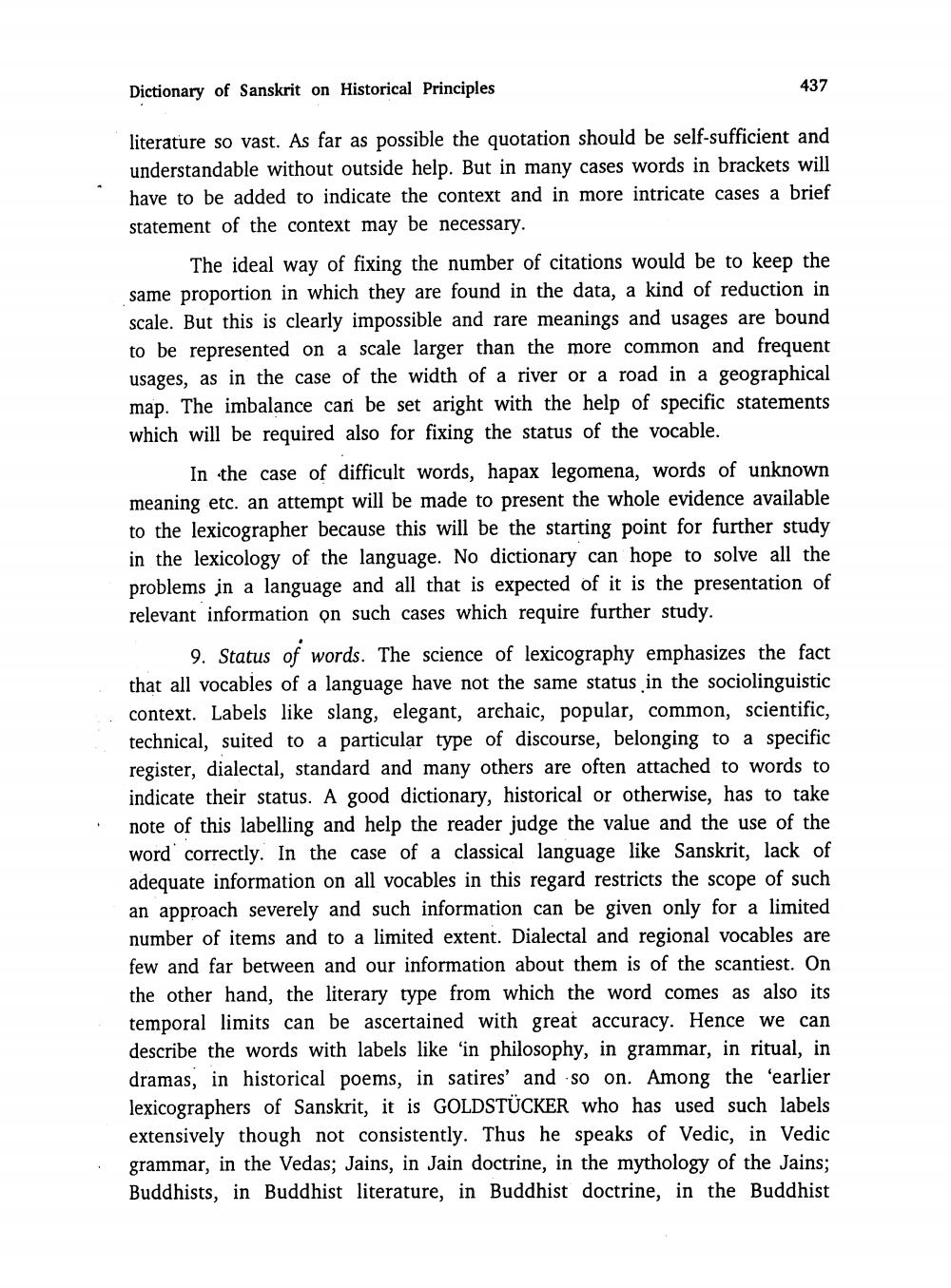________________
Dictionary of Sanskrit on Historical Principles
437
literature so vast. As far as possible the quotation should be self-sufficient and understandable without outside help. But in many cases words in brackets will have to be added to indicate the context and in more intricate cases a brief statement of the context may be necessary.
The ideal way of fixing the number of citations would be to keep the same proportion in which they are found in the data, a kind of reduction in scale. But this is clearly impossible and rare meanings and usages are bound to be represented on a scale larger than the more common and frequent usages, as in the case of the width of a river or a road in a geographical map. The imbalance can be set aright with the help of specific statements which will be required also for fixing the status of the vocable.
In the case of difficult words, hapax legomena, words of unknown meaning etc. an attempt will be made to present the whole evidence available to the lexicographer because this will be the starting point for further study in the lexicology of the language. No dictionary can hope to solve all the problems in a language and all that is expected of it is the presentation of relevant information on such cases which require further study.
9. Status of words. The science of lexicography emphasizes the fact that all vocables of a language have not the same status in the sociolinguistic context. Labels like slang, elegant, archaic, popular, common, scientific, technical, suited to a particular type of discourse, belonging to a specific register, dialectal, standard and many others are often attached to words to indicate their status. A good dictionary, historical or otherwise, has to take note of this labelling and help the reader judge the value and the use of the word correctly. In the case of a classical language like Sanskrit, lack of adequate information on all vocables in this regard restricts the scope of such an approach severely and such information can be given only for a limited number of items and to a limited extent. Dialectal and regional vocables are few and far between and our information about them is of the scantiest. On the other hand, the literary type from which the word comes as also its temporal limits can be ascertained with great accuracy. Hence we can describe the words with labels like 'in philosophy, in grammar, in ritual, in dramas, in historical poems, in satires' and so on. Among the earlier lexicographers of Sanskrit, it is GOLDSTÜCKER who has used such labels extensively though not consistently. Thus he speaks of Vedic, in Vedic grammar, in the Vedas; Jains, in Jain doctrine, in the mythology of the Jains; Buddhists, in Buddhist literature, in Buddhist doctrine, in the Buddhist




